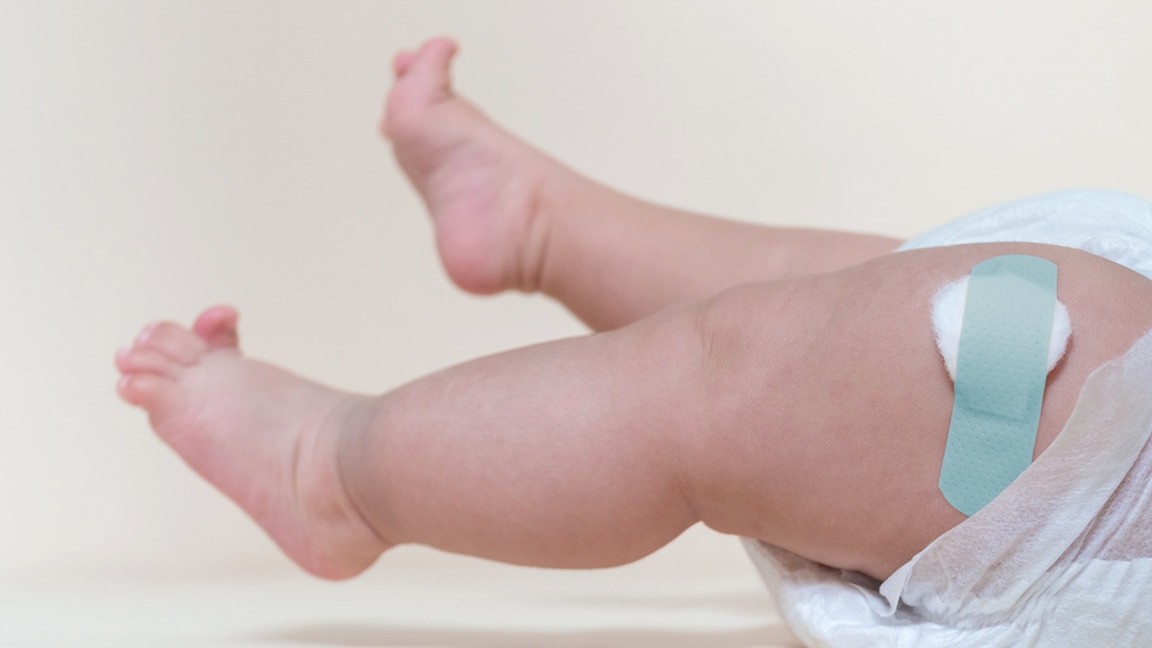Key points
- CDC recommends pneumococcal vaccination for all children younger than 5 years old.
- Children with certain risk conditions may need additional pneumococcal vaccines based on which vaccines they already received.
- Talk to a healthcare provider about pneumococcal vaccination to help protect your child's health.

Vaccines your child may need
In the United States, there are 2 types of vaccines recommended to help prevent pneumococcal disease in children:
- Pneumococcal conjugate vaccines (PCVs)
- PCV15
- PCV20
- PCV15
- Pneumococcal polysaccharide vaccine
- PPSV23
- PPSV23
All young children
CDC recommends PCV15 or PCV20 for children younger than 5 years old.
Children should receive 4 doses total, 1 dose at each of the following ages:
- 2 months
- 4 months
- 6 months
- 12 through 15 months
Children who started with an earlier PCV called PCV13 can finish with PCV15 or PCV20. There's no need to start over.
Children with certain risk conditions
Certain conditions increase a child's risk for pneumococcal disease.
Children 2 through 18 years old with one of those conditions may need more pneumococcal vaccines. It depends on which pneumococcal vaccines they already received and when.
Example 1: Preeta, a 6-year-old girl, is newly diagnosed with type 1 diabetes. She received the recommended doses of PCV13 or PCV15, but nothing else. She can benefit from the extra protection offered by PCV20 or PPSV23.
Example 2: PPSV23 is the only pneumococcal vaccine Darrel, a 3-year-old boy with sickle cell disease, ever received. PCV15 or PCV20 can provide important protection to him.
Talk to a vaccine provider about what is best for your child's specific situation. They can answer any questions you might have.
Resources
Pneumococcal Vaccine Information Statements
PCV: English | Other languages
PPSV23: English | Other languages
Other resources
Cochlear implants and vaccination recommendations
Parent-friendly schedule for children (birth through 6 years)
